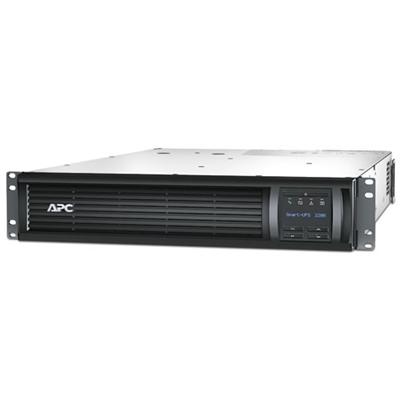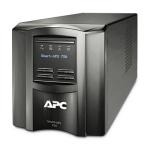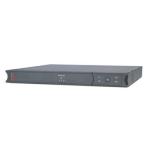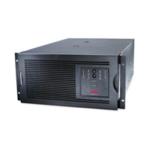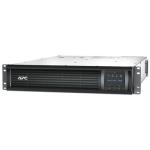Description
Intuitive LCD interface
Provides clear and accurate information in multiple languages with the ability to configure the UPS locally with easy to use navigation keys.
Predictive replace battery date
Dynamically provides the month and year when battery replacement is recommended to aide in long term maintenance planning.
Green mode
Patent-pending operating mode that bypasses unused electrical components in good power conditions to achieve very high operating efficiency without sacrificing any protection.
Energy meter
Provides actual kilowatt hours of usage for energy conscious users.
Outlet group control
Turn on/off, reboot or shut down select outlet groups to save dispatching technicians to remote locations (for UPSs with switched outlet groups).
Sequenced shutdown and restart
Configure select outlet groups to shut down and turn on in a pre-determined order (for UPSs with switched outlet groups).
Audible alarms
Provide notification of changing flywheel conditions
InfraStruXure Central compatible
Enables centralized management via APC InfraStruXure Central.
Pure sine wave output on battery
Simulates utility power to provide the highest degree of compatibility for active PFC (power factor corrected) servers and sensitive electronics.
Single switched outlet group
Single outlet group that may be controlled separately from the UPS for discrete reboot of hung devices, sequenced on/off and non-critical load shedding.
Wide input voltage range
Designed for harsh electrical environments to save battery life.
Battery failure notification
Provides early-warning fault analysis on batteries enabling timely preventive maintenance
High online efficiency
Reduces utlility costs, generates less heat.
LED Indicators
Provide easy-to-read status of your utility power conditions, UPS and battery.
SmartSlot
Customize UPS capabilities with management cards.
Cold-start capable
Provides temporary battery power when the utility power is out.
Serial Connectivity
Use any Home Automation network to monitor and control the S20 through its RS-232 serial port. For information on how to communicate with the S20, see APC’s Application Note #102. Crestron and AMX installers should visit their respective websites for information on how to integrate the S20 into those networks.
Hot-swappable batteries
Ensures clean, uninterrupted power to protected equipment while batteries are being replaced
Disconnected battery notification
Warns when a battery is not available to provide backup power.
Automatic self-test
Periodic battery self-test ensures early detection of a battery that needs to be replaced.
Automatic restart of loads after UPS shutdown
Automatically starts up the connected equipment upon the return of utility power.
Adjustable voltage-transfer points
Maximizes useful battery life by widening the input voltage window or tightening the output voltage regulation.
Adjustable voltage sensitivity
Provides the ability to adapt the UPS for optimal performance in specific power environments or generator applications.
Audible alarms
Provides notification of changing utility power and UPS conditions.
User-replaceable batteries
Increases availability by allowing a trained user to perform upgrades and replacements of the batteries reducing Mean Time to Repair (MTTR)
USB connectivity
Provides management of the UPS via a USB port (not available on all models).
Serial Connectivity
Provides management of the UPS via a serial port.
Temperature-compensated battery charging
Prolongs battery life by regulating the charge voltage according to battery temperature.
Boost and Trim Automatic Voltage Regulation (AVR)
Gives higher application availability by correcting low and high voltage conditions without using the battery.
Intelligent battery management
Maximizes battery performance, life, and reliability through intelligent, precision charging.
Safety-agency approved
Ensures the product has been tested and approved to work safely with the connected service provider equipment and within the specified environment.
Network manageable
Provides remote management of the UPS over the network.
Frequency and voltage regulation
Gives higher application availability by correcting poor frequency and voltage conditions without using the battery.
Adjustable voltage sensitivity
Provides the ability to adapt the Power Conditioner for optimal performance in specific power environments or generator applications.
Predicitive failure notification
Provides early-warning fault analysis ensuring proactive component replacement.
